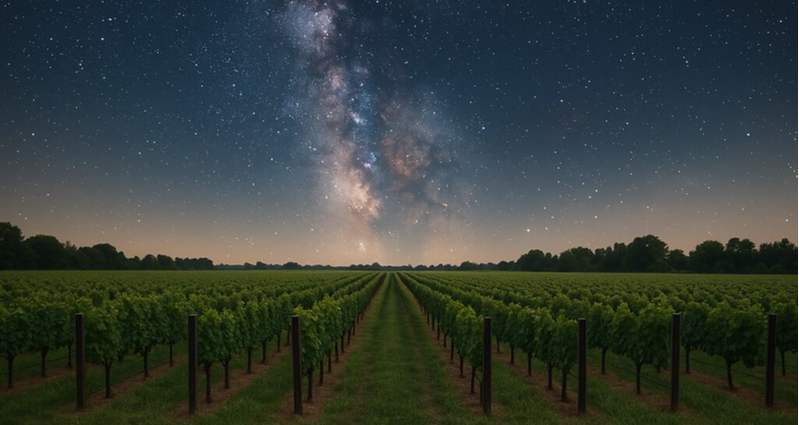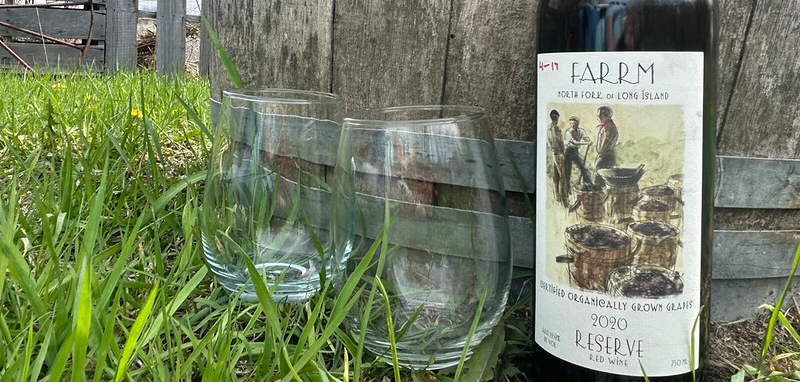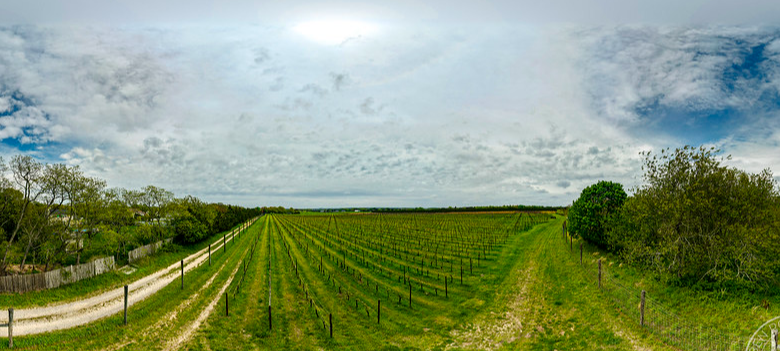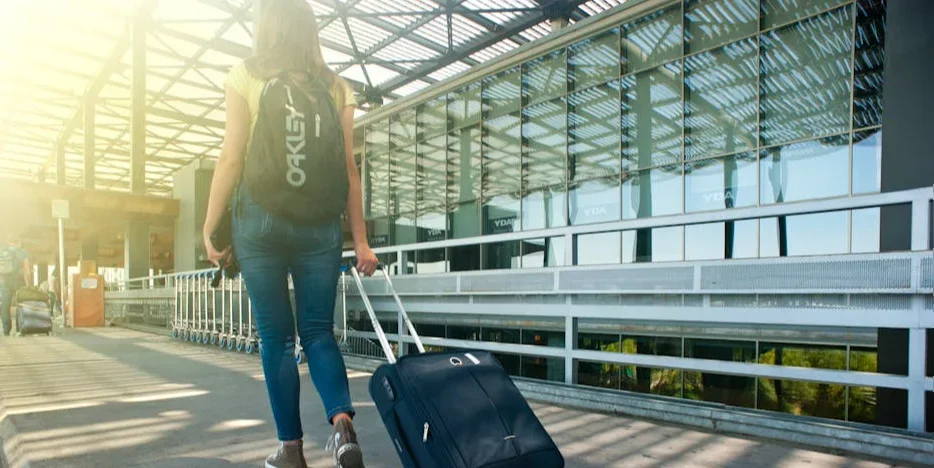
In the World of winemaking, where tradition meets innovation, Rex Farr of Farrm Wines stands out as a pioneer in making wine via biodynamic farming. Nestled in the North Fork of Long Island, Farrm Wines is not just a vineyard; it's a testament to the power of organic and biodynamic farming practices. This article delves into Rex Farr's inspiring journey from a Vietnam veteran to a trailblazer in sustainable agriculture, exploring the unique methods that set Farrm Wines apart in the realm of organic viticulture.
The Genesis of Farrm Wines
Rex Farr's ‘Farrm’ story begins in 1984 when he and his wife, Connie, purchased 60 acres of land in Baiting Hollow, Long Island. Initially dabbling in music and photography, Rex's transition to farming was unexpected yet transformative. By 1990, The ‘Farrm’ had become the first certified organic farm on Long Island, supplying top New York chefs with fresh, organic produce. Rex's commitment to organic farming was driven by a desire to return to a more natural way of cultivating the land, a decision that would later pave the way for his venture into biodynamic farming.
Rex recalls the early days with a mixture of nostalgia and humor. "I looked around and said, Holy cow, I've got 60 acres. What am I going to do?" he reminisces. His initial foray into farming was filled with learning experiences, from understanding crop cycles to navigating the challenges of organic certification. Yet, it was this very journey that laid the foundation for Farrm Wines' future success.
From Organic to Biodynamic: A Natural Progression
The journey from organic to biodynamic farming was a natural progression for Rex. Having already embraced organic principles, he found the biodynamic approach to be a complementary extension. "We've been practicing biodynamics for almost as long as we've been farming," Rex notes, highlighting the seamless integration of these practices into his vineyard operations.
Biodynamic framing is more than just a method; it's a philosophy that views the vineyard as a living organism. This holistic approach was pioneered by Rudolf Steiner in the early 1920s. Steiner, an Austrian philosopher, introduced the concept of biodynamics as a response to the declining health of European soils and crops, which he attributed to the increasing use of synthetic fertilizers and pesticides. His lectures on agriculture laid the groundwork for what would become a revolutionary approach to farming.
Steiner's principles emphasize the interconnectedness of soil, plants, and animals, advocating for a self-sustaining ecosystem that thrives in harmony with the natural World. Central to biodynamics is the use of natural preparations and the alignment of farming activities with cosmic rhythms, the lunar and planetary cycles. Rex Farr has embraced these principles wholeheartedly, incorporating them into every aspect of his vineyard operations.
The Science and Art of Biodynamics
At the heart of biodynamic farming is a series of preparations, often referred to as "preps," that are used to enhance soil health and plant growth. These preps are made from natural materials such as cow manure, silica, equisetum & various herbs, and are applied according to a biodynamic Lunar calendar. Rex's dedication to biodynamic practices is evident in his pursuit of the ultimate, gold standard in biodynamic farming.
"We're about to get Demeter certified," Rex shares, highlighting the rigorous process that underscores the authenticity of his methods. This certification not only ensures the purity of the grapes but also emphasizes the harmonious relationship between the soil and the crop, a concept known as terroir. The idea is that the unique characteristics of the vineyard's location, including its climate and soil composition, are reflected in the taste of the wine.
Rex elaborates on the intricacies of biodynamic preparations with a touch of humor. "I want you to go out and grab a handful of cow manure," he says, describing the process of creating one of the key preps. Despite the seemingly unconventional methods, the results speak for themselves, with Farrm Wines producing grapes that are both vibrant and full of character.

The Unique Taste of Biodynamic Wines
The result of Rex's meticulous approach is a range of wines that boast purity and intensity, setting them apart from conventional offerings. Greg Gove, the winemaker at Farrm Wines, notes a distinct difference in the taste of biodynamic wines, attributing it to the unique mineral composition of the North Fork's soil. Rex proudly states, "You're drinking wine that's 20,000 years in the making," a nod to the region's glacial history that enriches the terroir.
This connection to the land is evident in every bottle produced at Farrm Wines. The vineyard's location in the North Fork, with its unique climate and soil composition, provides an ideal environment for growing a variety of grape types, including Merlot, Cabernet Franc, Malbec, and Petit Verdot. Each wine reflects the distinct characteristics of the vineyard, offering a taste experience that is both authentic and exceptional.
Challenges and Triumphs in Organic Viticulture
Despite the success, Rex Farr faces challenges in a market dominated by conventional farming practices. He expresses frustration with the term "sustainable," often used to greenwash practices that still rely on chemicals. Rex advocates for transparency and integrity in agricultural labeling.
Yet, Rex's perseverance is unwavering. His commitment to organic and biodynamic principles has not only garnered respect but also cultivated a loyal following. Visitors to Farrm Wines are treated to immersive tours where they can experience the vineyard's natural beauty firsthand. "There's nothing synthetic about what goes on out there," Rex assures, inviting guests to connect with the land and the wines it produces.
Rex's tours are more than just a walk through the vineyard; they are an invitation to experience the philosophy and passion that drive Farrm Wines. Guests are encouraged to touch, taste, and immerse themselves in the environment, gaining a deeper appreciation for the biodynamic process. "I make them stand in that field for 30 seconds, just absorbing," Rex describes, emphasizing the importance of connecting with nature.

The Role of Community and Education
For Rex, the journey is as much about the people as it is about the wine. He values the relationships he has built with customers, chefs, and fellow farmers, and sees them as integral to the success of Farrm Wines. "If I'm giving you, you know, $10 worth of wine, I'm building $100 worth of relationship," Rex reflects, highlighting the importance of community and connection in his work.
Rex is also committed to education, both for his visitors and the broader community. He believes that sharing knowledge about biodynamic practices can inspire others to embrace more sustainable methods of farming. Through workshops, talks, and hands-on experiences, Rex aims to demystify biodynamics and demonstrate its benefits for both the land and the consumer.
The Future of Farrm Wines
Looking ahead, Rex Farr is optimistic about the future of wine making through biodynamic farming. With Demeter certification on the horizon and a growing interest in sustainable agriculture, Farrm Wines is poised to continue its legacy as a leader in organic viticulture. Rex's vision extends beyond the vineyard, as he seeks to educate and inspire others to embrace biodynamic practices.
As more consumers become aware of the environmental and health benefits of organic and biodynamic products, Rex anticipates a shift in the market towards more sustainable options. This growing demand presents both opportunities and challenges for Farrm Wines, as they strive to maintain their high standards while meeting increased interest.
Conclusion
Rex Farr's journey into biodynamic wine making is a testament to the transformative power of sustainable agriculture. At Farrm Wines, every bottle tells a story of dedication, innovation, and respect for nature. As Rex continues to champion biodynamic practices, he invites wine enthusiasts to explore the unique flavors of his wines and experience the harmony of the North Fork's terroir.
To learn more about Rex Farr and Farrm Wines, visit Farrm Wines ( https://farrmwine.com/ ) and discover a World where tradition meets sustainability in every sip.

What makes an organic vineyard different from a conventional vineyard? Organic vineyards avoid synthetic chemicals and use natural farming methods that promote soil health and biodiversity.
How does biodynamic farming improve grape quality? Biodynamics synchronizes vineyard activities with lunar and cosmic cycles, enhances soil vitality, and improves flavor intensity and complexity.
Is organic wine healthier than conventional wine? Organic wines are made from grapes grown without pesticides or synthetic additives, resulting in a purer, less chemical-laden wine.
Can visitors tour the organic vineyard ? Yes, Farrm Wines offers free tastings and guided tours Thursday through Sunday, inviting visitors to experience the vineyard firsthand.
How can I purchase wines from this organic vineyard? Wines can be bought directly in person at the Vineyard, or via seasonal delivery in Nassau and Suffolk counties and Manhattan.
Key Takeaways
Organic farming pioneers like Rex Farr blend tradition and innovation in sustainable, authentic farming practices.
Biodynamic farming enriches the soil and enhances grape flavor by following natural lunar cycles and special preparations.
Transparency and integrity in organic certification are vital to true sustainable agriculture and wine production.
Visitors can connect personally to the vineyard’s process through tours and tastings that reveal the story behind each bottle.
Accessible wines through direct sales, delivery, and restaurant partnerships foster closer farm-to-table experiences.
 Add Row
Add Row  Add
Add 




Write A Comment